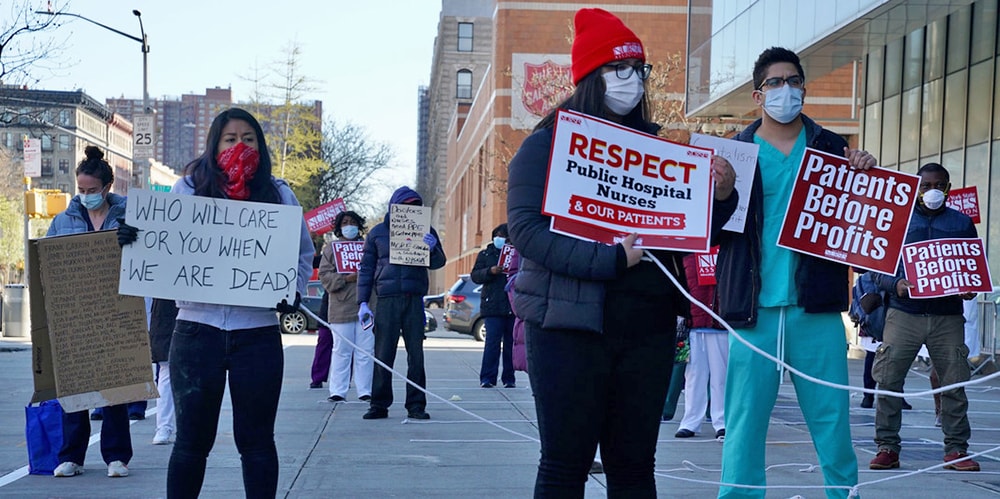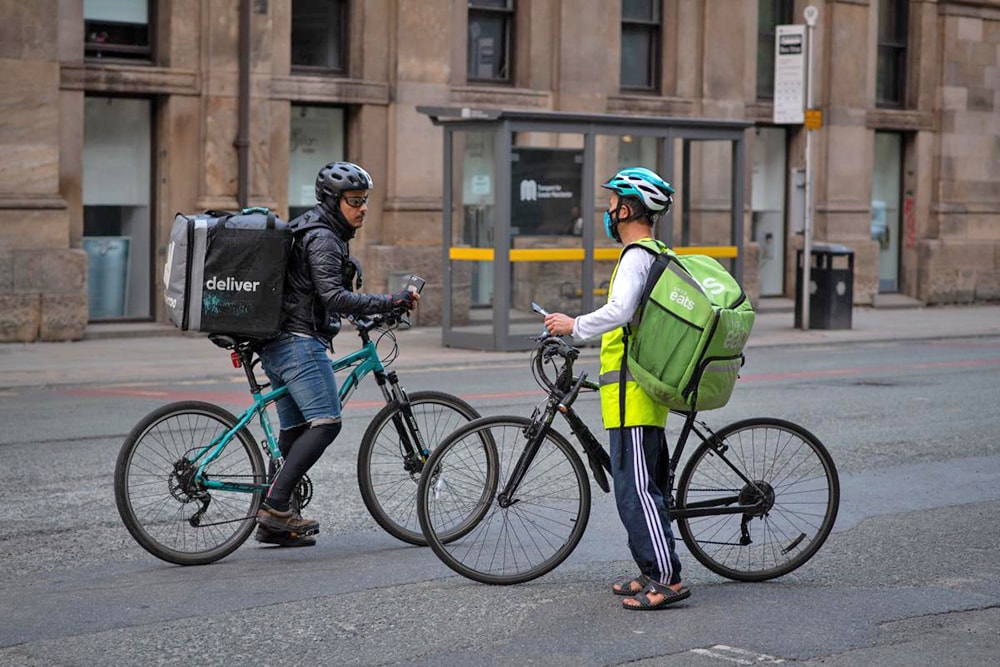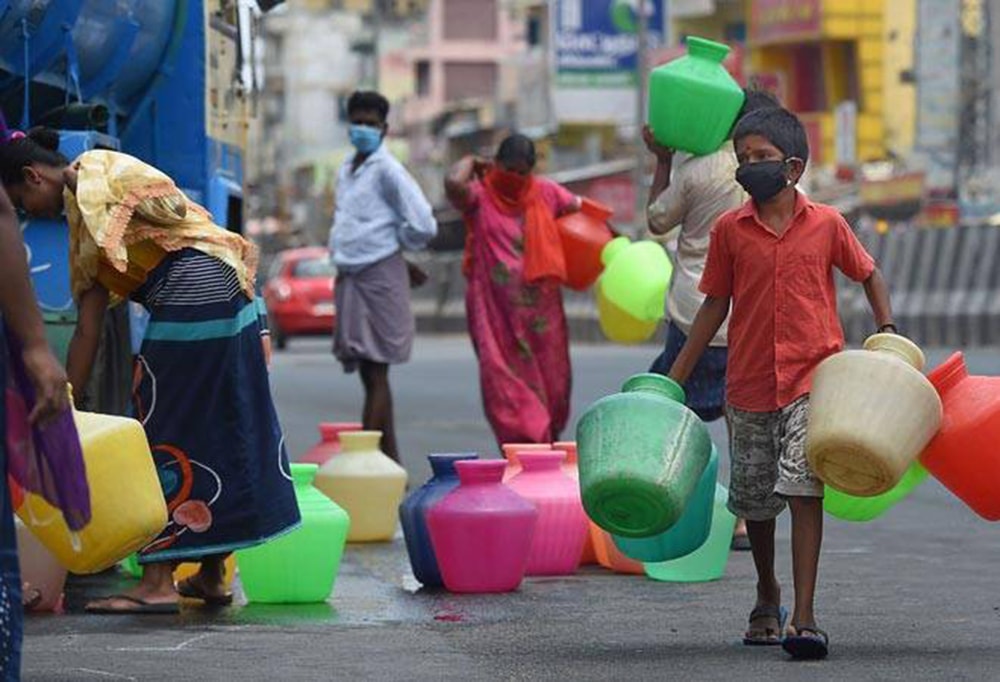Covid-19 exposes the dangers of the informal economy
(Baonghean) - Covid-19 has had a strong impact on the global economy, forcing businesses to close, disrupting supply chains, and leaving millions of people unemployed. The pandemic has also caused particular damage to the world's approximately 2 billion informal workers - who account for 60% of the social workforce but often earn less than 2 USD/day.
The rise of informal labor
Unlike workers in the formal economy who are legally and socially protected, informal workers have to make a living without a safety net. These people are mainly women and most of them find work for themselves, doing all kinds of jobs such as street vendors, domestic workers, rickshaw drivers, scrap collectors, etc. Some work as seasonal workers paid daily wages in factories, farms, and other formal enterprises that do not fully implement rights or protections for all workers working for them.
The crisis in the informal economy is affecting not only poor countries, but rich ones as well. Nearly one-fifth of workers in the United States are informal, and they are particularly vulnerable to the health threat posed by Covid-19 and its consequences. Informal workers in the United States today often conjure images of Uber drivers, but the shift to a larger informal economy began under President Ronald Reagan.
 |
| Workers in the US protest for better protection against the Covid-19 epidemic. Photo: UN |
Employer regulations loosened after 1980, allowing businesses to gradually shift risk to subcontractors, day laborers, and other workers with flexible schedules. The lack of worker protections now makes the Covid-19 crisis in the US particularly serious: not just a health or economic crisis, but a deeper social crisis that has persisted for decades.
In developing countries, the pandemic has exposed deep-rooted social inequalities. In India, where 90% of employment is informal, the International Labour Organization (ILO) estimates that more than 400 million workers could fall deeper into poverty (earning less than $2 a day) as a result of the nationwide lockdown imposed on March 24. The large presence of the informal economy in many poor countries also increases the risk of Covid-19 spreading among the most vulnerable workers, who depend on daily wages and have nothing to live on if they do not work.
They face many health risks such as poor nutrition, lack of sanitation, chronic diseases due to air and water pollution. Therefore, it is not surprising that informal workers in Colombia, Malawi, Uganda, ... have protested for emergency aid. However, only a few governments have taken small steps to support informal workers in the current crisis. For example, in Peru, where about three-quarters of jobs are informal, the poorest workers have been given a cash handout of about $100.
Among the biggest risk factors for Covid-19 are social and economic inequalities, which are amplified by the informal economy. Many informal workers, already at risk, have suddenly been relegated to “essential” status, tasked with keeping the economy running during the pandemic even if they lack basic employment protections.
 |
| Delivering goods by bicycle during the Covid-19 lockdown in Manchester, England in April. Photo: Panos Pictures |
This includes restaurant workers, farmworkers, cleaners, delivery people—none of whom can work remotely from home. Thanks to this segment of the workforce, wealthier Americans can work safely from home without exposing themselves to the virus. The rest of the formal economy relies heavily on goods and services produced and delivered by informal workers.
It remains unclear how the emergency measures passed by the US Congress, which allocate more than $2 trillion, will help informal workers, as they contain burdensome requirements and major loopholes. The pandemic has clearly deepened the precarious situation of informal workers in the US, as well as in India and other developing countries. Many workers now have no idea how they will pay for their next meal, let alone rent, and this situation is forcing them to continue working despite the risks.
Critical point
Major crises sometimes expose the roots of social and economic problems, encouraging reform and change. For example, the Great Depression led to the New Deal, which laid the foundation for a new social contract that solidified in the years after World War II, establishing social safety nets as the basis for collective bargaining, enabling the growth of the middle class, expanding social and legal protections for workers, and formalizing economic security for most workers.
Since then, however, economic crises have had the opposite effect. In the United States, they have enabled lawmakers to roll back existing welfare programs, loosen regulations, demonize immigrants, and bail out corporations that often rely on informal workers to do the most menial work. Looking back, the five major crises since the 1970s have eroded much of the country’s social safety net, pushing many workers into the informal economy.
 |
| About 90% of India's workers work in the informal economy, which is ill-equipped to deal with the pandemic. Photo: Businesstoday |
But it’s time to rethink that, as the Covid-19 pandemic has spurred increased solidarity. Many organizations have stepped up to protect informal workers and plug gaps left by government programs in many American cities. While their efforts are important, they are not enough. If Americans, or people in any country, want to mitigate the impact of the current crisis and prepare for future ones, it is crucial to expand the social safety net and increase protections for informal workers.
It is important to recognize that it is not the lockdowns that have caused economic instability, but the “culprit” is the informalization of the economy that has occurred over the past decades. To have a stronger society and a stronger country, it is necessary to recognize the importance of the informal economy, take advantage of Covid-19 mitigation programs to demand and obtain greater protections for all workers, and formalize the informal economy.

